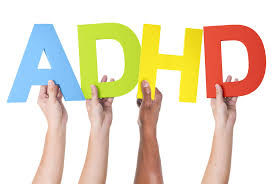Brown: ADHD is more than a disability
June 22, 2020
Attention deficit hyperactivity disorder (ADHD) is a common disorder that can affect not only attention and focus, but also emotion, memory and other essential functions. It is necessary to understand that for those with ADHD, it is more than just a learning disability. It can impact many aspects of a person’s life, such as career, socialization and relationships. ADHD has impacted even me and it continues to guide and affect my life.
Many people dismiss ADHD as a learning disability or something that goes away once you grow up. ADHD is a neurodevelopmental disorder that causes unusual brain functions that often affect emotions, memory, self-control and learning ability.
It is one of the most common neurodevelopmental disorders, affecting an estimated 8.4 percent of children and 2.5 percent of adults.
The core characteristics of ADHD are inattention, hyperactivity and impulsivity, all of which I exhibit. Hyperactivity and inattention symptoms are the most known and apparent factors in learning disabilities, making it a lot harder for students like me to sit still and focus in class.
However, it is essential to note ADHD does not deplete attention. It scatters attention unevenly, and focus can only occur under certain circumstances. For example, I can solely focus on a task when I’m chewing gum or listening to music. This lack of focus is because an ADHD nervous system is interest-based, rather than importance or priority-based. Unfortunately, this interest-based system leads to problems in time management, short-term memory and focusing on essential tasks.
While attention and focus difficulties are the more recognizable aspects of ADHD, many people dismiss executive function and emotional regulation difficulties that can also occur. Executive dysfunction is when higher functions, such as focus, memory and planning, don’t work correctly and work in a different capacity.
This dysfunction can manifest as difficulty in completing a task unless there are immediate and severe consequences. There have been several occasions where I have put an assignment off until the last minute, only to be able to complete it 10 minutes before the deadline. This can easily be linked to laziness and procrastination by those who don’t understand the difference. It’s easier for them to blame the individual, then consider the reasoning behind why they can’t “just do it on time.”
People with ADHD also experience emotions differently. It is more difficult for them to regulate their emotions in a “normal” manner. They speak and think passionately and their feelings are more intense than those of the average person. Relationships with friends, family and loved ones can be affected as a result.
The symptoms associated with ADHD also affect social settings. Inattention, impulsivity, executive dysfunction and emotional regulation difficulties can all culminate and make it more difficult for children to establish peer relationships. These symptoms make them appear “rude, self-centered, irresponsible, lazy and ill-mannered.“
ADHD is more than just a disability. It severely affects people’s lives beyond an academic setting. The stereotypes that surround its effects make understanding them harder, which can hurt people with ADHD. People need to be willing to understand that ADHD is not just a problem in school, but in people’s everyday lives.

















